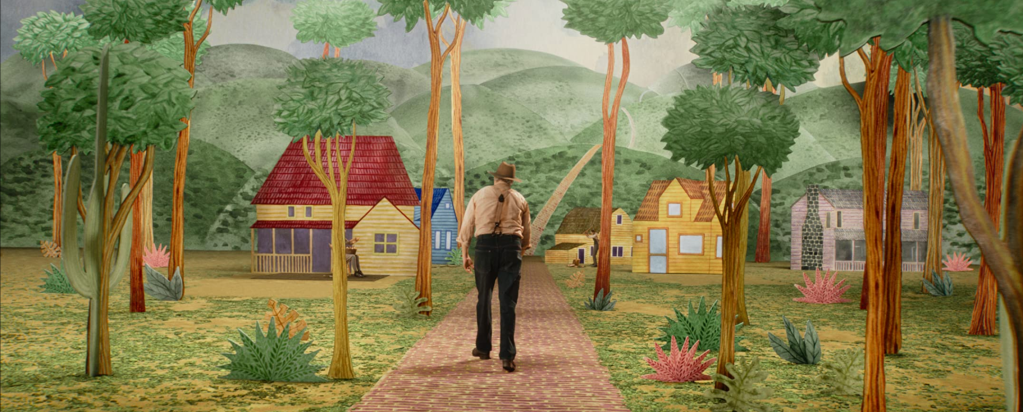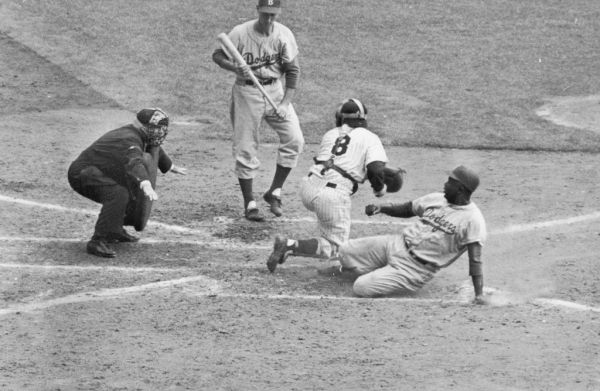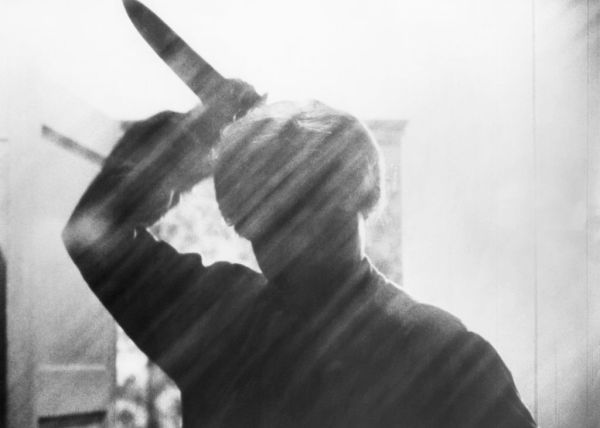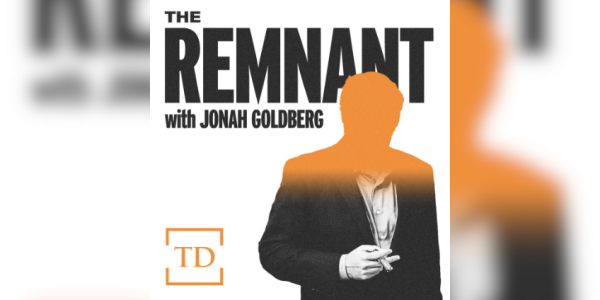Modern society, for all its luxuries and technological miracles, can be terrifyingly inhospitable. That seems to be one takeaway of Beau Is Afraid, the third feature from writer-director Ari Aster, who has rapidly established himself as a cinematic enfant terrible in recent years. Aster’s previous two films—the excruciatingly predictable Hereditary (2018) and the pointlessly lurid Wicker Man pastiche Midsommar (2019)—were both directed with formidable style, but their insipid storylines failed to display that same creativity. Here, he seems intent not only on addressing his past shortcomings, but on outdoing his own propensity for the grotesque. Beau Is Afraid does not conceal its many literary and cinematic inspirations, but there’s nothing derivative about its mushroom-trip-meets-psychogenic-fugue of a script.
Joaquin Phoenix plays the titular Beau Wassermann, a squishy and gray man, dressed exclusively in muted colors, with a face that’s frequently either terrified or incredulous. We find him living in a dilapidated apartment amidst an anarchic neighborhood. Adult establishments, broken glass, and flaming garbage cans decorate the streets. Murderous lunatics and savage criminals run wild at all hours of the day. It’s a Fox News caricature of Portland made hellish reality. Aster seemingly tries to place a typical American city in a funhouse mirror, exploring what could occur if a neglected pocket of lawlessness and decay consumed an entire urban environment. The result is equally stunning and sickening.
Beau initially appears to be little more than a vehicle for Aster to showcase the horror of the world he’s dreamed up. Though naturally docile, his meekness clearly stems from some repression, and the baggage weighing on his psyche causes him to suffer from crippling anxiety. He fears even the most mundane aspects of daily life—packing a suitcase is enough to provoke a panic attack—and exists in a bubble of carefully ordered solitude. The look of perpetual fright on his face amplifies the chaos around him as he scampers to and from his apartment building, running at Olympic speed to evade his marauding neighbors.
Phoenix, as usual, is unrecognizable: He transforms completely into the part and inhabits it without once faltering throughout all three of the film’s increasingly deranged hours. For much of that time he wears a desperate expression and speaks in a simpering tone—at first relying too heavily on the tricks that won him an Oscar for Joker (2019)—but there’s a dynamism to his performance that keeps it lively. Sometimes he can be grimly hilarious, while in other moments his anguished howls are almost physically painful to watch.
Eventually, Beau abandons his local squalor to travel across the United States. His mother (played by longtime Broadway regular Patti LuPone) has a birthday coming up, and an emergency demands that Beau fly home to see her as promptly as possible. A Homeric voyage ensues, as he navigates a series of increasingly surreal encounters. Until its climax, much of the film plays out like a collection of vignettes. One sequence blends Eraserhead with Blue Velvet as Beau finds himself taken in by an outwardly wholesome family concealing a few strange traumas, while another sees him stumble across a cultish theater troupe staging a production in a forest.
Throughout, it’s difficult to understand what purpose any of this is designed to serve. Aster gestures wildly at a number of themes and ideas, but whatever specific points he intends to make are almost impossible to discern amid the confusion he unleashes. Besides urban decline and its attendant tensions, he prods at the family unit, isolation and mental illness, bohemian subcultures, and economic disparities. Beau’s picaresque odyssey could certainly be taken as a portrait of the contemporary United States; a warped parody of the excesses, oddities, and anxieties that define American life in our astonishingly self-sufficient yet spiritually malnourished moment.
This interpretation does little, however, to account for the surreal flourishes spread throughout, which seem to be present purely for the sake of gratuitous weirdness. In one instance, Beau turns on a television and absentmindedly switches to a channel that shows him his own future. Sure enough, the rest of the film follows what we see on the screen. But this scene, though intriguing and quietly disturbing, is never referred to again, and seems to have no relevance to any facet of the narrative. It’s far from the only inscrutable element of the film’s first two hours, which present such a wild feast of insanity that the sensible approach to viewing the film might be simply to submit to Aster’s assault. Those with a taste for the transgressive will be fascinated—and occasionally sent into hysterics—by the results.
It helps that the film is driven by an impressive set of supporting performances. LuPone plays Beau’s mother with all the menace and intimidating power of a fascist dictator. Occupied by a lesser actor, the role would be defined by overwrought gestures and demented screeching, but she avoids descending into pantomime villainy. Other standouts include Nathan Lane, who manages to be at once charming and suspicious as an overly earnest surgeon, and Kylie Rogers, who provides one of the film’s more realistic terrors in her role as his brattish, pill-dependent daughter.
But as gloriously scatterbrained as Beau Is Afraid may be, there’s a jolting shift in its final hour. After ambling between an eclectic mixture of metaphors without clear direction, Aster places his focus on a singular subject: the Freudian traumas underpinning Beau’s relationship with his mother. A torrent of psychosexual exposition is unleashed, bringing the film to a lumbering pace that’s almost impossible to bear in the wake of all the exhausting madness that’s come before it. Aster’s screed raises several unpleasant themes—child abuse, emasculation, and emotional manipulation among them—that illuminate some of the more cryptic sequences in the film’s first half, but it feels as though the director is unloading his own baggage onto the audience without offering anything entertaining or edifying in return. By the end, one can’t help but feel like an unpaid, overworked psychiatrist.
Beau Is Afraid is an ambitious film that could have been a modern epic told in the style of a post-Lynchian fever dream. Instead, it’s ultimately a frustrating exercise in misused potential, though its positive attributes are so remarkable that there’s much to recommend about it. Aster has proven himself to be a director of immense technical prowess with a flair for the outré. If he can continue to develop his strengths while restraining his more indulgent impulses, he may soon make a masterpiece.





Please note that we at The Dispatch hold ourselves, our work, and our commenters to a higher standard than other places on the internet. We welcome comments that foster genuine debate or discussion—including comments critical of us or our work—but responses that include ad hominem attacks on fellow Dispatch members or are intended to stoke fear and anger may be moderated.
You are currently using a limited time guest pass and do not have access to commenting. Consider subscribing to join the conversation.
With your membership, you only have the ability to comment on The Morning Dispatch articles. Consider upgrading to join the conversation everywhere.